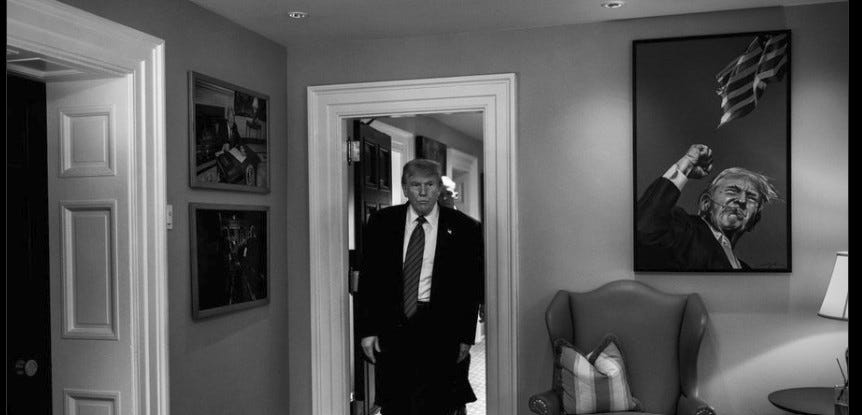I recently reached out to the local sheriff's office and did something I hadn't previously expected would ever be on my radar: I asked that, if they ever receive a call regarding my residence that requires an emergency response, they keep in mind the high likelihood that it's a hoax. I was assured that the word would be passed to the local commander and deputies. There was no surprise on their part at what would have been a weird request just a few years ago, for good reason. The director of the FBI and other government officials have been sounding the alarm about an uptick in swatting attacks, many of them targeted at people whose political opinions rub somebody the wrong way.
Swatting on the Rise
"The Federal Bureau of Investigation (FBI) is aware of multiple recent 'swatting' incidents," according to an April 29 alert. "Swatting is the malicious tactic of making hoax calls or reports to emergency services, typically feigning an immediate threat to life. Swatting is intended to draw a large response from SWAT teams or other law enforcement resources to an unsuspecting victim's location, causing chaos and the potential for injury or violence."
The alert doesn't go into political targeting. But on March 14, FBI Director Kash Patel posted, "I want to address the alarming rise in 'Swatting' incidents targeting media figures. The FBI is aware of this dangerous trend, and my team and I are already taking action to investigate and hold those responsible accountable."
A few days later, Brendan Carr, chair of the Federal Communications Commission, similarly posted, "The recent surge in 'swatting' attacks against conservatives is a dangerous form of political violence. I've been in touch with law enforcement to ensure they have access to the trace back resources that locate a call's originating point."
Swatting has been a problem for years, with the term perhaps first used by the FBI in 2008. Even then, swatters were using technology to disguise their voices and make it look like calls originated at victims' homes. In 2018, with swatting attacks occurring frequently enough to be a serious problem, the Seattle Police Department launched a voluntary registry to which people could add their names and addresses if they thought they might be targets. Other communities, including Wichita, Kansas, implemented similar systems.
A Cheap Form of Terrorism
More recently, swatting has become a political weapon through which activists use the emergency reporting system and the police on the other end to threaten and intimidate people they don't like.
"When men arrive at your home heavily armed, body armor, tiptoeing around the perimeter of your home, that's a serious situation," conservative writer Larry Taunton told his local CBS channel in Alabama after his family was swatted one night in March.
"They put me against my garage and handcuffed me in my front yard in my boxers," South Carolina conservative media personality Chad Caton commented to a local ABC affiliate after his home was swatted. "I'm watching a weapon in my wife's face as she's coming out of my house and I'm watching the end of his rifle shake because of his own anxiety."
Because Caton knew of others with similar experiences, he and his wife were as prepared as you can be for such situations. Perhaps unsurprisingly given how cops often interact with dogs, "they both agreed to put their dog Diesel into their primary bedroom to protect him."
On March 20, CNN's Hadas Gold reported that "at least a dozen influencers" had been swatted in the previous two weeks. "Almost all the influencers who have publicized their recent swattings are conservative supporters of President Donald Trump." In the article, one victim referred to swatting as a "cheap form of terrorism."
As terrorism goes, swatting isn't as overtly dangerous as shooting political offices, torching Teslas and Tesla dealerships, firebombing a governor's house, attempting to assassinate a presidential candidate, or murdering the CEO of a healthcare company. But there's peril any time police are sent into potentially violent confrontations with the public. Andrew Finch was killed by police during one swatting incident in 2017 involving squabbling gamers (he had nothing to do with the dispute). Mark Herring died of a heart attack during another incident in 2020 caused by somebody who wanted his Twitter handle.
It's enough to say that swatting has become a risky means of harassing people at a time of rising political violence across the United States. Last year, believing that Trump supporters were the greatest threat, former U.S. attorney Barbara McQuade referred to swatting incidents as "signs of a troubling escalation in political violence."
Part of a Surge in Political Violence
But Republicans won the 2024 elections and now are the ones being targeted by those who didn't like the outcome. Increasing incidents of swatting occur in an environment in which the Network Contagion Research Institute and the Rutgers University Social Perception Lab noted in an April report that "tolerance – and even advocacy – for political violence appears to have surged, especially among politically left-leaning segments of the population."
All that said, do I have any real reason to fear being targeted? I'm libertarian, not conservative, and write as many critical pieces about the current administration as positive ones. Theoretically that sets me apart from the people on the receiving end of most recent terrorist attacks. But, to judge by the angry correspondence I get (some of you need to work on your grammar and spelling), those pieces get noticed. And some swatting victims report less serious harassment, such as deliveries of food they never ordered, and multiple attempts to hack into accounts.
That's a more familiar experience for me. One recent day, I fielded around a dozen bogus "account recovery" attempts and several phishing phone calls. My colleagues are on the receiving end of much the same. I guess we all annoyed somebody who wasn't satisfied with illiterate nastygrams.
So, out of an abundance of caution, I reached out to the sheriff's office and advised my colleagues to do the same with their own police departments.
I guess I'd rather be a potential swatting target than on an arsonist's or an assassin's to-do list for. It would be better yet if the current state of the country didn't make any of these concerns necessary.
The post FBI Warns of Swatting Amidst a Wave of Politically Motivated Attacks appeared first on Reason.com.













 Bengali (Bangladesh) ·
Bengali (Bangladesh) ·  English (United States) ·
English (United States) ·